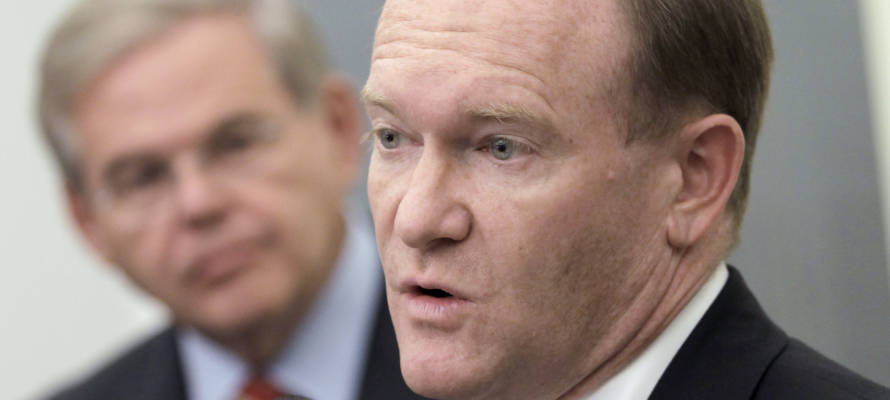The Obama administration’s push for more companies to do business with Iran is inappropriate and concerning, Sen. Chris Coons (D – Del.), a Democratic member of the Senate Foreign Relations Committee, said Thursday.
“It is Iran’s challenge to demonstrate that their economy is transparent enough, legitimate enough, secure enough, to attract foreign investment. I don’t think it’s our job to act as the chamber of commerce for Tehran,” Sen. Chris Coons (D – Del.), who supported the nuclear deal with Iran despite strong reservations, told The Weekly Standard after speaking at an event for the Council on Foreign Relations.
Coons expressed similar sentiments during his speech to the Council, rejecting Iranian claims that the US was not living up to the terms of the nuclear deal because it was not helping companies invest. “The United States has upheld our end of the bargain,” Coons said. “We have not prevented Iran from receiving economic benefits associated with the deal.” He added that he was was “concerned that by entertaining Iranian complaints of inadequate sanctions relief, we risk giving these claims legitimacy.”
This isn’t the first time that Coons has pushed back against the notion that the United States wasn’t doing enough to facilitate sanctions relief. In April, Coons rejected statements made by Central Bank of Iran governor Valiollah Seif, who said that the United States had not given Iran enough sanctions relief. “If Iran is unhappy with the level of economic relief it has received since this agreement came into effect, it only has its own actions to blame,” Coons responded on the floor of the Senate.
The Washington Free Beacon reported on Wednesday that the State Department’s efforts to boost business with Iran has put it at odds with the Treasury Department, which imposes and enforces sanctions. “It’s no secret that Treasury officials are seething with anger at Secretary Kerry,” a congressional source told the Free Beacon. “They say he’s endangering corporations and banks because he keeps declaring that Iran is open for business and safe to enter, suggesting that the secretary doesn’t quite understand how U.S. sanctions or financial crime risks work.”
Other observers have questioned the administration’s efforts to boost investment in Iran.
In May, President Barack Obama’s former undersecretary of the treasury for terrorism and financial intelligence, Stuart Levey, who is now the chief legal officer of the British bank HSBC Holdings, wrote in a Wall Street Journal op-ed that Iran’s financial corruption made it impossible for his company to work with Iran, despite the State Department’s efforts to get companies to invest. “Now Washington is pushing non-U.S. banks to do what it is still illegal for American banks to do,” Levey said. “This is a very odd position for the U.S. government to be taking.”
Similarly, Brookings Institution senior fellow Suzanne Maloney, who supported the nuclear deal, wrote in May that “the PR blitz by senior U.S. officials to reassure Iran’s prospective foreign investors has taken on an unseemly tone, especially since existing sanctions prohibit U.S. persons from facilitating transactions with Iran by foreign entities.”
By: TheTower.org
